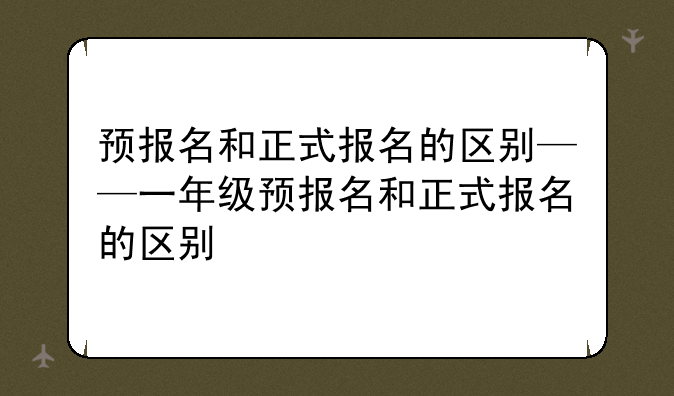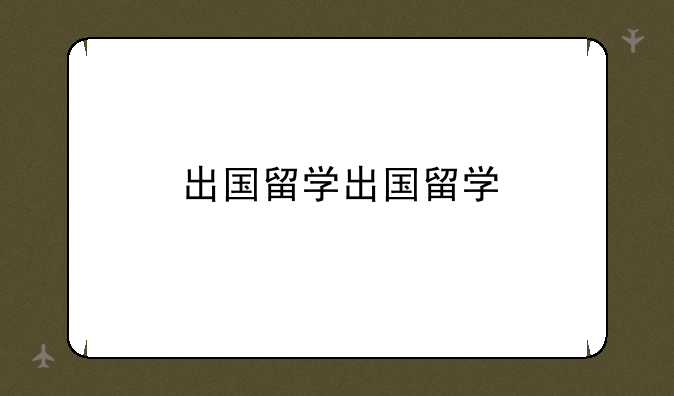2014年6月大学英语四级听力真题及答案
 2025-06-12 0条评论
2025-06-12 0条评论
小笋芽中的这篇文章是关于英语四级历年真题的相关信息,希望可以帮助到你。
2014年6月大学英语四级听力真题及答案

再过半个月就要进行英语四级考试了,这时候同学们可以赶紧做做真题来找到考试的感觉,通过做真题你会发现一些规律,找到解题方法。为大家准备了2014年6月英语四级考试听力真题及答案,一起来看看吧!有需要的朋友可以收藏起来!
2014年6月大学英语四级听力真题及答案
Listening Comprehension (30 minutes) Section A
Directions: In this section, you will hear 8 short conversations and 2 long conversations. At the end of each conversation, one or more questions will be asked about what was said. Both the conversation and the questions will be spoken only once. After each question there will be a pause. During the pause, you must read the four choices marked A), B), C) and D), and decide which is the best answer. Then mark the corresponding letter on Answer Sheet 1 with a single line through the centre.
注意:此部分试题请在答题卡1上作答。
1. A. See a doctor about her strained shoulder B.Use a ladder to help her reach the tea. C.Replace the cupboard with a new one. D.Place the tea on a lower shelf next time.
1. W: I can’t seem to reach the tea at the back of the cupboard。 M: Oh„ Why don’t you use the ladder You might strain your shoulder。 Q: What does the man suggest the woman do
2. A. At Mary Johnson’s B. In an exhibition hall C. At a painter’s studio. D. Outside an art gallery.
2. W: Since it’s raining so hard, let’s go and see the new exhibits。 M: That’s a good idea. Mary Johnson is one of my favorite painters。 Q: Where does the conversation most probably take place
3. A. The teacher evaluated lacks teaching experience.
B. She does not quite agree with what the man said. C. The man had better talk with the students himself. D. New students usually cannot offer a fair evaluation.
3. M: I hear the students gave the new teacher an unfair evaluation。 W: It depends on which student you are talking about。 Q: What does the woman imply
4. A. He helped Doris build up the furniture. B. Doris helped him arrange the furniture. C. Doris fixed up some of the bookshelves. D. He was good at assembling bookshelves.
4. W: It must have taken you a long time to fix up all these book shelves。 M: It wasn’t too bad. I got Doris to do some of them。 Q: What does the man mean
5. A. He doesn’t get on with the others. B. He doesn’t feel at ease in the firm. C. He has been taken for a fool. D. He has found a better position.
5. W: Rod, I hear you’ll be leaving at the end of this month. Is it true
M: Yeah. I’ve been offered a much better position with another firm. I’d be a fool to turn it down。 Q: Why is the man quitting his job
6. A. They should finish the work as soon as possible. B. He will continue to work in the garden himself. C. He is tired of doing gardening on weekends. D. They can hire a gardener to do the work.
6. W: I honestly don’t want to continue the gardening tomorrow, Tony M: Neither do I. But I think we should get it over with this weekend。 Q: What does the man mean
7. A. The man has to get rid of the used furniture. B. The man’s apartment is ready for rent. C. The furniture is covered with lots of dust. D. The furniture the man bought is inexpensive.
7. W: You’ve already furnished your apartment M: I found some used furniture that was dirt cheap。 Q: What do we learn from the conversation
8. A. The man will give the mechanic a call. B. The woman is waiting for a call. C. The woman is doing some repairs. D. The man knows the mechanic very well.
8. W: Has the mechanic called the bus repairers
M: Not yet .I’ll let you know when he calls。 Q: What do we learn from the conversation
9. A. She had a job interview to attend. B. She was busy finishing her project. C. She had to attend an important meeting. D. She was in the middle of writing an essay.
Question: 9. Why couldn’t the woman’s roommate attend the Shakespearean English class that afternoon W: Nothing, it’s just that she submitted a job application yesterday and the company asked her in for an interview today. She’s afraid she won’t be able to attend your class this afternoon though. I’m calling to see whether it would be OK if I gave you her essay. Janet said it’s due today。
10. A. Accompany her roommate to the classroom. B. Hand in her roommate’s application form. C. Submit her roommate’s assignment. D. Help her roommate with her report.
Question: 10. What favor is the woman going to do for her roommate
11. A. Where Dr. Ellis’s office is located. B. When Dr. Ellis leaves his office. C. Directions to the classroom building. D. Dr. Ellis’s schedule for the afternoon.
Question: 11. What does the woman want to know at the end of the conversation
W: Fine, please tell her I’ll be there at 4:00. And Dr. Ellis, one more thing, could you tell me where your office is Janet told me where your class is, but she didn’t give me directions to your office。
12. A. He find it rather stressful. B. He is thinking of quitting it. C. He can handle it quite well. D. He has to work extra hours.
Question: 12. What does the man say about his job
M: Not bad, Jane. I’m involved in several projects and it’s a long working day. But I’m used to that so it doesn’t bother me too much。
13. A. The 6:00 one B. The 6:30 one. C. The 7:00 one D. The 7:30 one Question: 13. Which train does the man take to work every day
M: It was terrible at first, especially getting up before dawn to catch that 6:30 train. But it’s bearable now that I’ m used to it。
14. A. It is an awful waste of time. B. He finds it rather unbearable. C. The time on the train is enjoyable. D. It is something difficult to get used to.
Question: 14. How does the man feel about commuting to work every day now
W: Don’t you think it’s an awful waste of time I couldn’t bear to spend three hours sitting in a train every day。
M: I used to feel the same as you. But now I quite enjoy it。
15. A. Reading newspaper. B. Chatting with friends. C. Listening to the daily news. D. Planning the day’s work.
Question: 15. How does the man spend his time on the morning train
W: How do you pass the time Do you bring some work with you to do on the train
M: Ah, that’s a good question. In the morning, I just sit in comfort and read the papers to catch up with the news. On the way home at night, I relax with a good book or chat with friends or even have a game of bridge。
Section B
Directions: In this section, you will hear 3 short passages. At the end of each passage, you will hear some questions. Both the passage and the questions will be spoken only once. After you hear a question, you must choose the best answer from the four choices marked A), B), C) and D). Then mark the corresponding letter on Answer Sheet 1 with a single line through the centre.
注意:此部分试题请在答题卡1上作答。
Passage One
Questions 16 to 18 are based on the conversation you have just heard.
16. A) Ignore small details while reading. B) Read at least several chapters at one sitting. C) Develop a habit of reading critically.
D) Get key information by reading just once or twice.
Question: 16. What should American college students do to cope with their heavy reading assignments
17. A) Choose one’s own system of marking. B) Underline the key words and phrases. C) Make as few marks as possible. D) Highlight details in a red color.
Question: 17. What suggestion does the speaker give about marking a textbook
18. A) By reading the textbooks carefully again. B) By reviewing only the marked parts. C) By focusing on the notes in the margins. D) By comparing notes with their classmates.
Question: 18. How should students prepare for an exam according to the speaker
Passage Two
Questions 19 to 21 are based on the conversation you have just heard
19. A) The sleep a person needs varies from day to day. B) The amount of sleep for each person is similar. C) One can get by with a couple of hours of sleep. D) Everybody needs some sleep for survival.
Question: 19. What is taken for granted by most people
20. A) It is a made-up story. B) It is beyond cure. C) It is a rare exception. D) It is due to an accident.
Question: 20. What do doctors think of Al Herpin's case
21. A) His extraordinary physical condition. B) His mother’s injury just before his birth. C) The unique surroundings of his living place. D) The rest he got from sitting in a rocking chair.
Question: 21. What could have accounted for Al Herpin's sleeplessness
Passage Three
Questions 22 to 25 are based on the conversation you have just heard.
22. A) She invested in stocks and shares on Wall Street. B) She learned to write for financial newspapers. C) She developed a strong interest in finance. D) She tenderly looked after her sick mother.
Question: 22. What do we learn about Hetty Green as a child
23. A) She made a wise investment in real estate. B) She sold the restaurant with a substantial profit. C) She got 1.5 million dollars from her ex-husband. D) She inherited a big fortune from her father.
Question: 23. How did Hetty Green become rich overnight
24. A) She was extremely mean with her money. B) She was dishonest in business dealings. C) She frequently ill-treated her employees. D) She abused animals including her pet dog. Question: 24. Why was Hetty Green much hated
25. A) She made a big fortune from wise investment. B) She built a hospital with her mother’s money. C) She made huge donations to charities. D) She carried on her family’s tradition.
Question: 25. What do we learn about Hetty's daughter
Section C
Direction: In the section, you will hear a passage three times. When the passage is read for the first time, you should listen carefully for its general idea. When the passage is read for the second time, you are required to fill in the blanks with the exact words you have just heard. Finally, when the passage is read for the third time, you should check what you have written.
注意:此部分试题请在答题卡1上作答。
Among the kinds of social gestures most significant for second-language teachers are those which are (26) in form but different in meaning in the two cultures. For example, a Colombian who wants someone to (27) him often signals with a hand movement in which all the fingers of one hand, cupped, point downward as they move rapidly (28) .Speakers or English have a similar gesture through the hand may not be cupped and the fingers may be held more loosely, but for them the gesture means goodbye or go away, quite the (29) of the Colombian gesture. Again, in Colombian, a speaker of English would have to know that when he (30)height he most choose between different gestures depending on whether he is (31) a human being or an animal. If he keeps the palm of the hand (32)the floor, as he would in his own culture when making known the height of a child, for example, he will very likely be greeted by laughter, in Colombia this gesture is(33)for the description of animals. In order to describe human beings he should keep the palm of his hand (34)to the floor. Substitutions of one gesture for the other often create not only humorous but also(35) moment. In both of the examples above, speakers from two different cultures have the same gesture, physically, but its meaning differs sharply.
1.答案:B Use a ladder to help her reach the tea.
2.答案:D Outside an gallery art.
3.答案:D. New students usually cannot offer a fair evaluation.
4.答案:C Doris fixed up some of the bookshelves.
5.答案:D He has found a better position.
6.答案:A They should finish the book as soon as possible.
7.答案:D The furniture the man bought is inexpensive.
8.答案:B The woman is waiting for the call.
9.答案:A She had a job interview to attend
10.答案:C Submit her roommate's assignment
11.答案:A Where Dr. Ellis’s office is located.
12.答案:C He can handle it quite well
13.答案:B The 6:30 one
14.答案:C The time on the train is enjoyable
15.答案:A Reading newspapers.
Section B
Passage One
16.答案:D Get key information by reading just once or twice
17.答案:A Choose one's own system of marking
18.答案:B By reviewing only the marked parts.
Passage Two
19.答案:D Everybody needs some sleep for survival.
20.答案:C It is a rare exception
21.答案:B His mother's injury just before his birth.
Passage Three
22.答案:C She developed a strong interest in finance
23.答案:D She inherited a big fortune from her father
24.答案:A She was extremely mean with her money
25.答案:B She built a hospital with her mother's money
Section C
答案: 26. identical 27. approach 28. back and forth 29. opposite 30. indicates 31. referring to 32. parallel to 33. reserved 34. at the right angle 35. embarrassing
就是为大家提供的2014年6月英语四级考试听力真题及答案,希望对您有帮助!想要成功拿下12月份的英语四级,您还需掌握更多考试技巧, CTRL+D 收藏并持续关注本站有惊喜,将竭诚助您考试一臂之力!
猜你喜欢 :
大学英语四级词汇专题
1. 【真题】The shy girl felt and uncomfortable when she could not answer her teacher’s questions.(1998.6)
A. amazed
B. awkward
C. curious
D. amused
2.【真题】We welcome rain ,but a(an) _ large amount of rainfall will cause floods.(1994.1)
A. extensively
B. extremely
C. specially
D. constantly
3.【真题】A lot ants are always invading my kitchen . They are a thorough . (2000.1)
A. nuisance
B. trouble
C. worry
D. anxiety
4.【真题】 Writing is a slow process, requiring thought, time, and effort.(1996.6)
A. significant
B. considerable
C. enormous
D. numerous
5.【真题】 Mobile telecommunications _ is expected to double in Shanghai this year as a result of contract signed between the two companies.(2002.1)
A. capacity
B. potential
C. possession
D. impact
答案及解析
1. 【解析】答案为B
amazed惊讶的;awkward尴尬的,笨拙的,此处指感到窘困;curious好奇的,奇特的;amused逗笑的,消遣的。
【译文】那个害羞的女孩答不出老师的问题,感到又窘困又不自在。
awkward
a.尴尬的,棘手的;难操纵的,使用不便的;笨拙的,不灵活的
【联想】awkward与clumsy均有“笨拙的”之意。awkward强调因失去平衡或精神状态引起的笨拙;clumsy强调由于缺乏技巧或训练引起的笨拙。
【搭配】an awkward position尴尬境地;awkward time不便的时间
2.【解析】答案为B
extensively广泛地,大量地;extremely极度,非常;specially特别地,专门地;constantly不断地,经常地。
【译文】我们欢迎雨水,但极大量的雨水会导致洪水。
extreme
a.极度的,极端的;尽头的,末端的 n.极端,过分
【联想】extremely ad.极端地;极度,非常
含“极,最”之意的词条:maximum最大的,最高的,最大程度的;minimum最少的,最小的,最低的;ultimate最终的,最后的',不可逾越的;utmost最大的,极度的,极端的;pole(地球)极点
【搭配】go to extremes走极端;in the extreme非常,极其
3.【解析】答案为A
nuisance令人讨厌的人或物;trouble麻烦,困难,故障;worry担心,忧虑,烦恼;anxiety焦虑,渴望。
【译文】总有许多蚂蚁入侵我的厨房,讨厌极了!
nuisance
n.令人讨厌的东西(或状况,行为),讨厌的人
【联想】形似词nonsense n.胡说,废话;冒失(或轻浮)的行为
【搭配】a nuisance to sb.让……讨厌
4.【解析】答案为B
significant相当数量的,意义重大的;considerable相当大/多的;enormous巨大的,庞大的;numerous众多的,许多的。
【译文】写作是个很慢的过程,需要大量思考,花费大量时间和努力。
numerous
a.众多的,许多的
【联想】numerical a.数字的,数值的
含“许多的”之意的词或短语:many ,a (large/good)number of(接可数名词);much,a great deal of,a great amount of(接不可数名词);a lot of,plenty of(两者皆可)
5.【解析】答案为A
capacity容量;potential潜力;possession拥有,财产;impact影响。
【译文】由于两家公司所签定的合同,上海今年的移动通讯容量预计会翻一番。
capacity
n.容量,容积;才能,能力;身份,职位
【联想】ability,capability和capacity都有“能力”的意思,ability指人的智力或体力上的能力;capability与ability 可换用,但更强调潜在能力或镜训练获得的能力;capacity主要指能够容纳或吸收的能力。
2014年6月大学英语四级听力真题及答案
再过半个月就要进行英语四级考试了,这时候同学们可以赶紧做做真题来找到考试的感觉,通过做真题你会发现一些规律,找到解题方法。为大家准备了2014年6月英语四级考试听力真题及答案,一起来看看吧!有需要的朋友可以收藏起来!
2014年6月大学英语四级听力真题及答案
Listening Comprehension (30 minutes) Section A
Directions: In this section, you will hear 8 short conversations and 2 long conversations. At the end of each conversation, one or more questions will be asked about what was said. Both the conversation and the questions will be spoken only once. After each question there will be a pause. During the pause, you must read the four choices marked A), B), C) and D), and decide which is the best answer. Then mark the corresponding letter on Answer Sheet 1 with a single line through the centre.
注意:此部分试题请在答题卡1上作答。
1. A. See a doctor about her strained shoulder B.Use a ladder to help her reach the tea. C.Replace the cupboard with a new one. D.Place the tea on a lower shelf next time.
1. W: I can’t seem to reach the tea at the back of the cupboard。 M: Oh„ Why don’t you use the ladder You might strain your shoulder。 Q: What does the man suggest the woman do
2. A. At Mary Johnson’s B. In an exhibition hall C. At a painter’s studio. D. Outside an art gallery.
2. W: Since it’s raining so hard, let’s go and see the new exhibits。 M: That’s a good idea. Mary Johnson is one of my favorite painters。 Q: Where does the conversation most probably take place
3. A. The teacher evaluated lacks teaching experience.
B. She does not quite agree with what the man said. C. The man had better talk with the students himself. D. New students usually cannot offer a fair evaluation.
3. M: I hear the students gave the new teacher an unfair evaluation。 W: It depends on which student you are talking about。 Q: What does the woman imply
4. A. He helped Doris build up the furniture. B. Doris helped him arrange the furniture. C. Doris fixed up some of the bookshelves. D. He was good at assembling bookshelves.
4. W: It must have taken you a long time to fix up all these book shelves。 M: It wasn’t too bad. I got Doris to do some of them。 Q: What does the man mean
5. A. He doesn’t get on with the others. B. He doesn’t feel at ease in the firm. C. He has been taken for a fool. D. He has found a better position.
5. W: Rod, I hear you’ll be leaving at the end of this month. Is it true
M: Yeah. I’ve been offered a much better position with another firm. I’d be a fool to turn it down。 Q: Why is the man quitting his job
6. A. They should finish the work as soon as possible. B. He will continue to work in the garden himself. C. He is tired of doing gardening on weekends. D. They can hire a gardener to do the work.
6. W: I honestly don’t want to continue the gardening tomorrow, Tony M: Neither do I. But I think we should get it over with this weekend。 Q: What does the man mean
7. A. The man has to get rid of the used furniture. B. The man’s apartment is ready for rent. C. The furniture is covered with lots of dust. D. The furniture the man bought is inexpensive.
7. W: You’ve already furnished your apartment M: I found some used furniture that was dirt cheap。 Q: What do we learn from the conversation
8. A. The man will give the mechanic a call. B. The woman is waiting for a call. C. The woman is doing some repairs. D. The man knows the mechanic very well.
8. W: Has the mechanic called the bus repairers
M: Not yet .I’ll let you know when he calls。 Q: What do we learn from the conversation
9. A. She had a job interview to attend. B. She was busy finishing her project. C. She had to attend an important meeting. D. She was in the middle of writing an essay.
Question: 9. Why couldn’t the woman’s roommate attend the Shakespearean English class that afternoon W: Nothing, it’s just that she submitted a job application yesterday and the company asked her in for an interview today. She’s afraid she won’t be able to attend your class this afternoon though. I’m calling to see whether it would be OK if I gave you her essay. Janet said it’s due today。
10. A. Accompany her roommate to the classroom. B. Hand in her roommate’s application form. C. Submit her roommate’s assignment. D. Help her roommate with her report.
Question: 10. What favor is the woman going to do for her roommate
11. A. Where Dr. Ellis’s office is located. B. When Dr. Ellis leaves his office. C. Directions to the classroom building. D. Dr. Ellis’s schedule for the afternoon.
Question: 11. What does the woman want to know at the end of the conversation
W: Fine, please tell her I’ll be there at 4:00. And Dr. Ellis, one more thing, could you tell me where your office is Janet told me where your class is, but she didn’t give me directions to your office。
12. A. He find it rather stressful. B. He is thinking of quitting it. C. He can handle it quite well. D. He has to work extra hours.
Question: 12. What does the man say about his job
M: Not bad, Jane. I’m involved in several projects and it’s a long working day. But I’m used to that so it doesn’t bother me too much。
13. A. The 6:00 one B. The 6:30 one. C. The 7:00 one D. The 7:30 one Question: 13. Which train does the man take to work every day
M: It was terrible at first, especially getting up before dawn to catch that 6:30 train. But it’s bearable now that I’ m used to it。
14. A. It is an awful waste of time. B. He finds it rather unbearable. C. The time on the train is enjoyable. D. It is something difficult to get used to.
Question: 14. How does the man feel about commuting to work every day now
W: Don’t you think it’s an awful waste of time I couldn’t bear to spend three hours sitting in a train every day。
M: I used to feel the same as you. But now I quite enjoy it。
15. A. Reading newspaper. B. Chatting with friends. C. Listening to the daily news. D. Planning the day’s work.
Question: 15. How does the man spend his time on the morning train
W: How do you pass the time Do you bring some work with you to do on the train
M: Ah, that’s a good question. In the morning, I just sit in comfort and read the papers to catch up with the news. On the way home at night, I relax with a good book or chat with friends or even have a game of bridge。
Section B
Directions: In this section, you will hear 3 short passages. At the end of each passage, you will hear some questions. Both the passage and the questions will be spoken only once. After you hear a question, you must choose the best answer from the four choices marked A), B), C) and D). Then mark the corresponding letter on Answer Sheet 1 with a single line through the centre.
注意:此部分试题请在答题卡1上作答。
Passage One
Questions 16 to 18 are based on the conversation you have just heard.
16. A) Ignore small details while reading. B) Read at least several chapters at one sitting. C) Develop a habit of reading critically.
D) Get key information by reading just once or twice.
Question: 16. What should American college students do to cope with their heavy reading assignments
17. A) Choose one’s own system of marking. B) Underline the key words and phrases. C) Make as few marks as possible. D) Highlight details in a red color.
Question: 17. What suggestion does the speaker give about marking a textbook
18. A) By reading the textbooks carefully again. B) By reviewing only the marked parts. C) By focusing on the notes in the margins. D) By comparing notes with their classmates.
Question: 18. How should students prepare for an exam according to the speaker
Passage Two
Questions 19 to 21 are based on the conversation you have just heard
19. A) The sleep a person needs varies from day to day. B) The amount of sleep for each person is similar. C) One can get by with a couple of hours of sleep. D) Everybody needs some sleep for survival.
Question: 19. What is taken for granted by most people
20. A) It is a made-up story. B) It is beyond cure. C) It is a rare exception. D) It is due to an accident.
Question: 20. What do doctors think of Al Herpin's case
21. A) His extraordinary physical condition. B) His mother’s injury just before his birth. C) The unique surroundings of his living place. D) The rest he got from sitting in a rocking chair.
Question: 21. What could have accounted for Al Herpin's sleeplessness
Passage Three
Questions 22 to 25 are based on the conversation you have just heard.
22. A) She invested in stocks and shares on Wall Street. B) She learned to write for financial newspapers. C) She developed a strong interest in finance. D) She tenderly looked after her sick mother.
Question: 22. What do we learn about Hetty Green as a child
23. A) She made a wise investment in real estate. B) She sold the restaurant with a substantial profit. C) She got 1.5 million dollars from her ex-husband. D) She inherited a big fortune from her father.
Question: 23. How did Hetty Green become rich overnight
24. A) She was extremely mean with her money. B) She was dishonest in business dealings. C) She frequently ill-treated her employees. D) She abused animals including her pet dog. Question: 24. Why was Hetty Green much hated
25. A) She made a big fortune from wise investment. B) She built a hospital with her mother’s money. C) She made huge donations to charities. D) She carried on her family’s tradition.
Question: 25. What do we learn about Hetty's daughter
Section C
Direction: In the section, you will hear a passage three times. When the passage is read for the first time, you should listen carefully for its general idea. When the passage is read for the second time, you are required to fill in the blanks with the exact words you have just heard. Finally, when the passage is read for the third time, you should check what you have written.
注意:此部分试题请在答题卡1上作答。
Among the kinds of social gestures most significant for second-language teachers are those which are (26) in form but different in meaning in the two cultures. For example, a Colombian who wants someone to (27) him often signals with a hand movement in which all the fingers of one hand, cupped, point downward as they move rapidly (28) .Speakers or English have a similar gesture through the hand may not be cupped and the fingers may be held more loosely, but for them the gesture means goodbye or go away, quite the (29) of the Colombian gesture. Again, in Colombian, a speaker of English would have to know that when he (30)height he most choose between different gestures depending on whether he is (31) a human being or an animal. If he keeps the palm of the hand (32)the floor, as he would in his own culture when making known the height of a child, for example, he will very likely be greeted by laughter, in Colombia this gesture is(33)for the description of animals. In order to describe human beings he should keep the palm of his hand (34)to the floor. Substitutions of one gesture for the other often create not only humorous but also(35) moment. In both of the examples above, speakers from two different cultures have the same gesture, physically, but its meaning differs sharply.
1.答案:B Use a ladder to help her reach the tea.
2.答案:D Outside an gallery art.
3.答案:D. New students usually cannot offer a fair evaluation.
4.答案:C Doris fixed up some of the bookshelves.
5.答案:D He has found a better position.
6.答案:A They should finish the book as soon as possible.
7.答案:D The furniture the man bought is inexpensive.
8.答案:B The woman is waiting for the call.
9.答案:A She had a job interview to attend
10.答案:C Submit her roommate's assignment
11.答案:A Where Dr. Ellis’s office is located.
12.答案:C He can handle it quite well
13.答案:B The 6:30 one
14.答案:C The time on the train is enjoyable
15.答案:A Reading newspapers.
Section B
Passage One
16.答案:D Get key information by reading just once or twice
17.答案:A Choose one's own system of marking
18.答案:B By reviewing only the marked parts.
Passage Two
19.答案:D Everybody needs some sleep for survival.
20.答案:C It is a rare exception
21.答案:B His mother's injury just before his birth.
Passage Three
22.答案:C She developed a strong interest in finance
23.答案:D She inherited a big fortune from her father
24.答案:A She was extremely mean with her money
25.答案:B She built a hospital with her mother's money
Section C
答案: 26. identical 27. approach 28. back and forth 29. opposite 30. indicates 31. referring to 32. parallel to 33. reserved 34. at the right angle 35. embarrassing
就是为大家提供的2014年6月英语四级考试听力真题及答案,希望对您有帮助!想要成功拿下12月份的英语四级,您还需掌握更多考试技巧, CTRL+D 收藏并持续关注本站有惊喜,将竭诚助您考试一臂之力!
猜你喜欢 :
版权声明
1.本站遵循行业规范,任何转载的稿件都会明确标注作者和来源;2.本站的原创文章,请转载时务必注明文章作者和来源,不尊重原创的行为我们将追究责任;3.作者投稿可能会经我们编辑修改或补充。
转载请注明来自,本文标题:2014年6月大学英语四级听力真题及答案
本文地址:https://www.xsunya.com/chaxun/10097.html
标签:
- 本站介绍
-
小笋芽提供全国考试报名时间、考试政策解读及备考资料,涵盖公务员、教师资格、职业资格等考试资讯,同步分享职场工作总结模板与学习经验,助考生高效规划备考,一站式解决考试全周期需求。
- 搜索
-
-
- 最新文章
- 热门文章
- 随机阅读
- 随机tag
- 友情链接
-


























